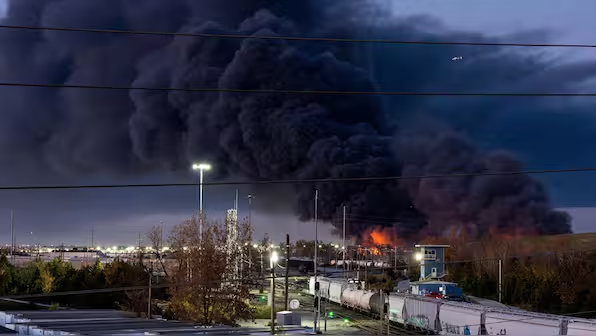U.S. freight aviation took a sudden pause this week after a dire crash involving a wide-body cargo jet near Louisville, Kentucky, claimed at least 14 lives. As a precautionary measure, two of the country’s top air-cargo operators announced they are grounding their fleets of the aircraft type involved, citing safety concerns and regulatory recommendations. The ripple effects could weigh on global supply-chains, as investigation teams dig into what went wrong.
Safety First: Why the Fleet Was Grounded
After the cargo jet crashed shortly after take-off from an industrial hub near Louisville Muhammad Ali International Airport, the two major carriers — UPS Airlines and FedEx Express — announced the suspension of operations of their combined more-than-50 McDonnell Douglas MD-11 freighters.
The companies said the decision was made “out of an abundance of caution”, following a recommendation from aircraft manufacturer Boeing, which inherited the MD-11 programme.
Though the MD-11 only represents about 9 % of UPS’s total fleet and an even smaller share for FedEx, the grounding underscores how even a fraction of cargo capacity can have outsized impact.
Crash Details & Ongoing Investigation
The aircraft involved in the crash was preparing for a long-haul mission when it lifted off and almost immediately encountered trouble. Investigators say the jet reached only around 100 feet before beginning a sharp descent and burning upon impact.
The crash also triggered fires in a nearby industrial area, increasing the severity of the incident and complicating rescue efforts.
The U.S. National Transportation Safety Board (NTSB) and the Federal Aviation Administration (FAA) have launched a full investigation into the cause, and aviation experts say preliminary data shows warning bells in the cockpit mere seconds after take-off thrust.
Logistics Implications & Wider Impact
While the immediate safety measure is focused on a single aircraft type, the business impact is broader. UPS and FedEx serve as backbone carriers for retailers, manufacturers and postal services — so any interruption in their air-cargo workflow has the potential to ripple through supply-chains.
Carriers are now activating contingency plans to keep goods moving, but analysts warn that regional hubs, long-haul logistics and retailer stock management could all feel the strain if the fleet remains grounded for an extended period.
For local communities around the crash site, the event has raised renewed scrutiny over industrial safety, aircraft age and runway operations — discussion that may lead to regulatory and infrastructural reviews in the months ahead.




































